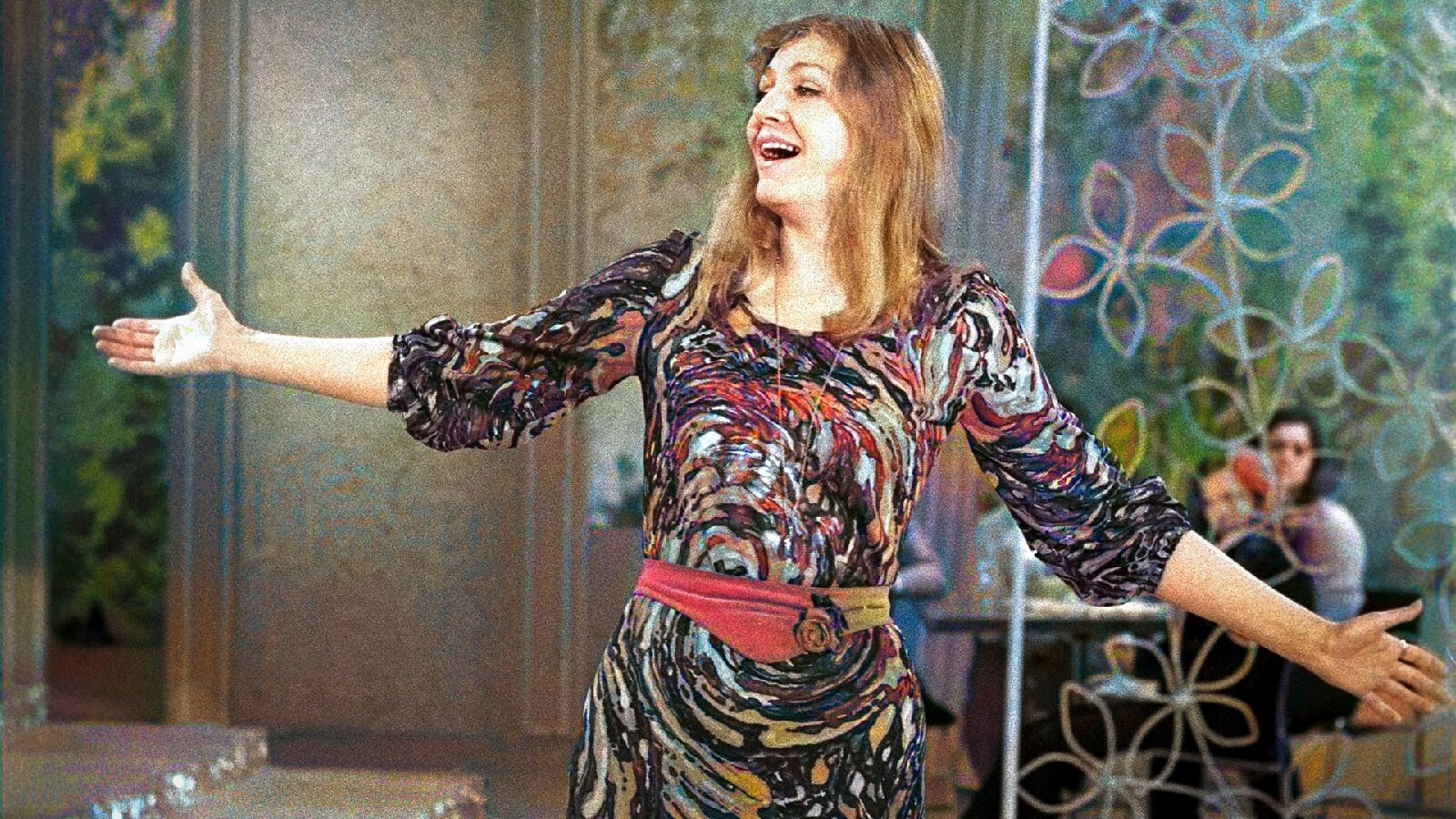
‘Hope is my compass on Earth’ is how the most famous song by Anna German (1936-1982) is called. Born in Soviet Central Asia, she lived in the Polish People’s Republic and performed in Italy, but became the USSR’s main and favorite singer.
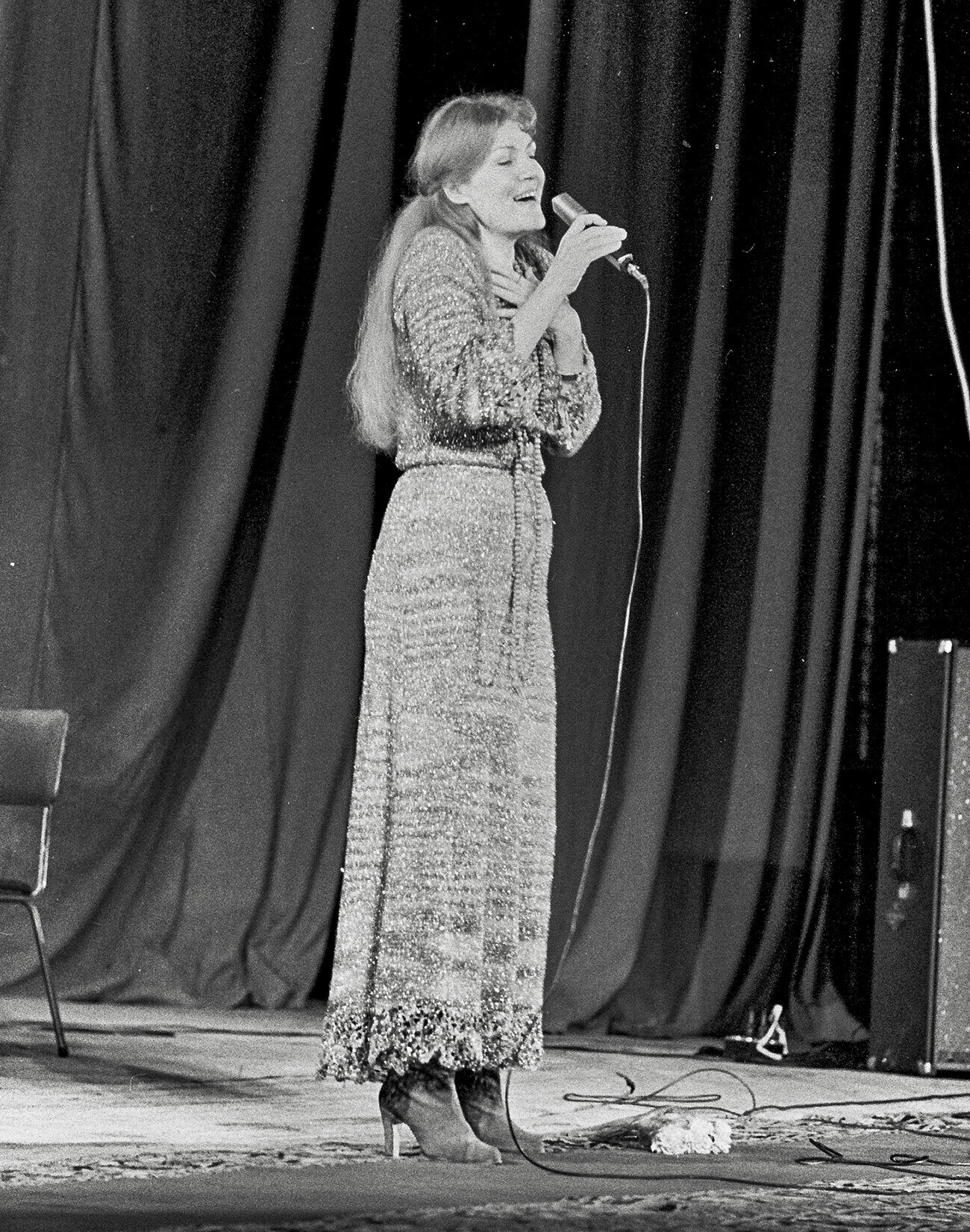
Anna German was born in the small Uzbek town of Urgench near the Turkmenistan border. In those years, Siberia and Soviet Central Asia were the homes for a large number of Russian Germans, who came to Russia in the mid-18th century at the invitation of Empress Catherine the Great (read more here).
Anna’s parents were descendants of Germans and Dutch Mennonites and she, herself, spoke an ancient dialect called ‘Plautdietsch’ from childhood.
Her father was repressed in 1937 for a false denunciation of espionage, her uncle died in the GULAG camps and she with her mother and grandmother first relocated to Kyrgyzstan, then Kazakhstan and finally Siberia, in a vain attempt to find out information about their relatives. Eventually, her mother married a Polish officer, which allowed her family to move to Poland. Anna studied geology in Wroclaw and participated in amateur art activities. Subsequently, the hobby grew into a profession. But, in her personal life, she followed what she believed to be Oriental traditions - for example, she always prepared dinners for her husband Zbigniew Tucholski.
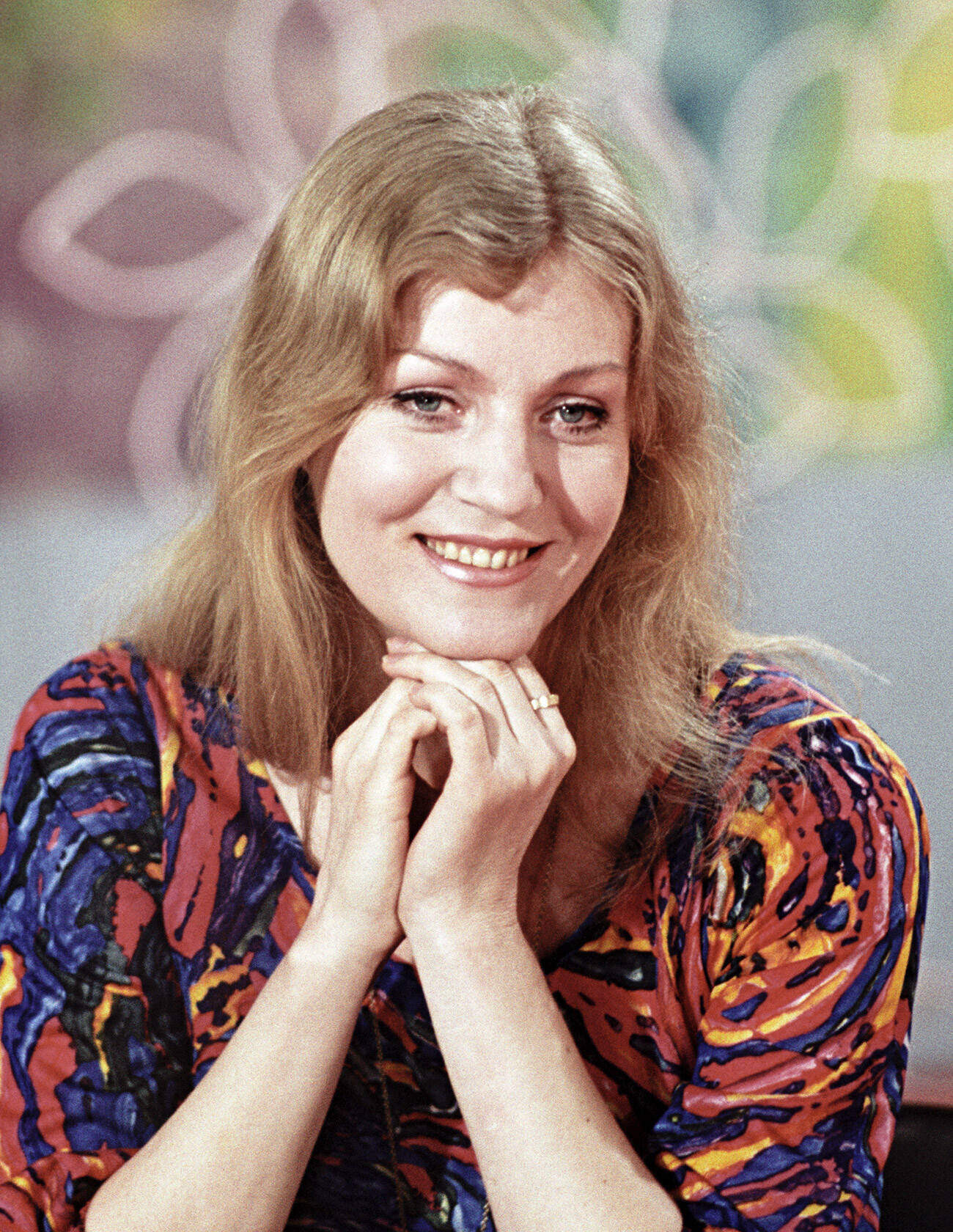
“In my opinion, a man’s place is not in the kitchen,” Anna once said in an interview with Moscow television in 1976. “He comes home from work and I bring him different dishes and I think that’s an Oriental custom, because I was born in Central Asia.
Anna German received her first recognition as a singer in 1963, taking the second prize at the Sopot International Song Festival (Eurovision analog) and, a year later - the second prize at the National Festival of Polish Song in Opole. Then she toured the Soviet Union for the first time with her Polish songs, after which the Soviet recording company ‘Melodia’ offered to produce her first album.
Despite her popularity, however, she and her family lived in very cramped conditions and she dreamed of her own house. In 1966, she was offered a contract in Italy for three years and she decided that this was a chance to get out of poverty. Afterwards, she repeatedly said that she didn’t like the fact that they tried to make her a European pop star, wearing wigs and bright make-up and given no rest between concerts. And that was ultimately what led to the terrible tragedy.
In 1967, Anna performed at the Sanremo Music Festival and then gave concerts in several Italian towns. However, the producer was trying to save money on everything. Her driver was her accompanist and, during a night drive, he fell asleep at the wheel. Their car went off the road, Anna was thrown 20 meters from the car. She was found only hours later in a pile of stones with multiple fractures. The driver only sustained minor injuries.
Anna spent twelve days in a coma and six months in a full body cast, lying motionless on her back. “I was in a cast from neck to toe. With tears I asked to have it removed,” she later recalled.
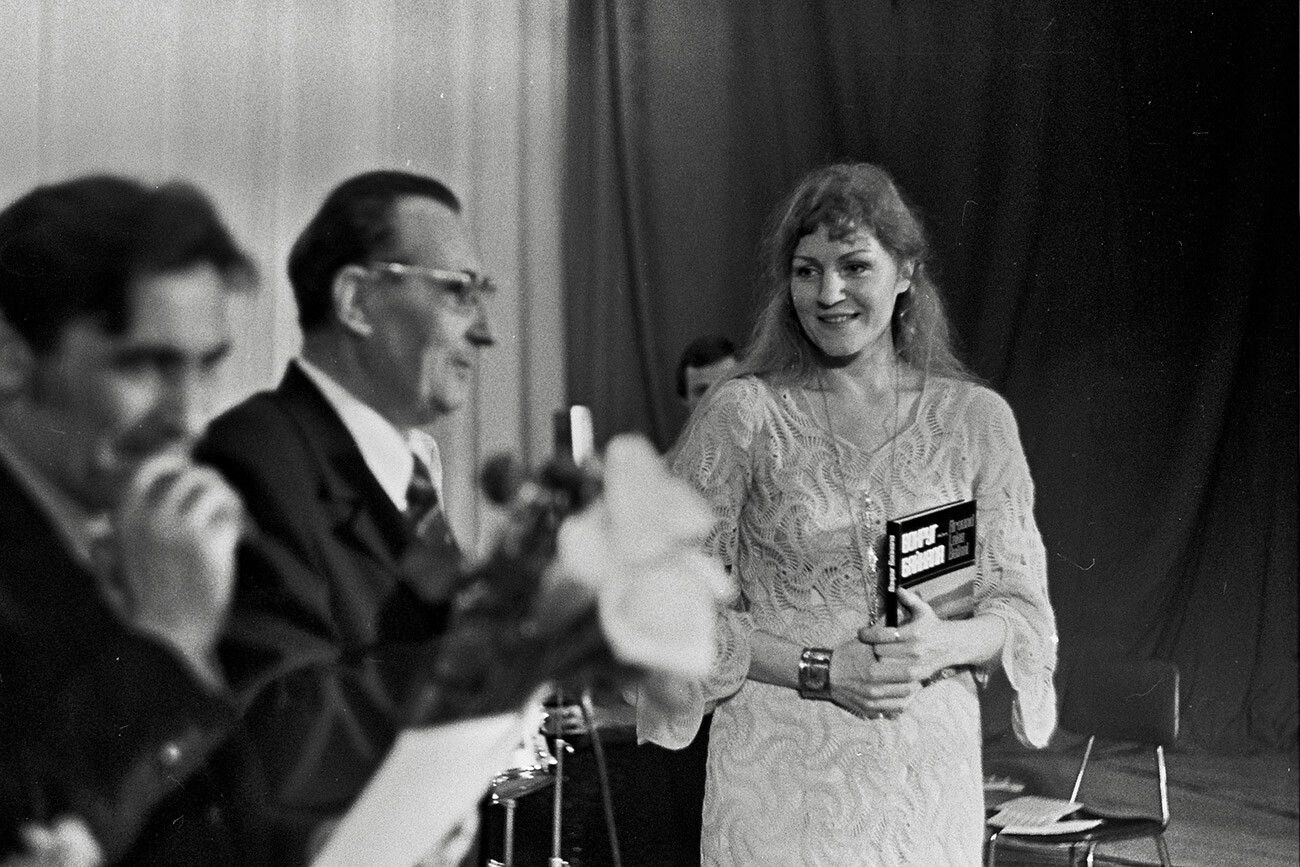
And when it was finally removed, she spent another three years re-learning how to walk and suffered from headaches for the rest of her life. However, in an interview with Moscow television, she referred to this long period of recovery as simply “free time”.
“The days were very long, and so were the nights,” she recalled. “First of all, I wanted to respond to all the letters I received both from Italy and from the Soviet Union.” By her own admission, it was the love of the Soviet public that helped her return to the stage.
Anna German sang her most famous songs after the accident. The most talented Soviet composers wrote songs for her. One of the first such melodies was ‘The hope’ by Alexandra Pakhmutova, which brought Anna national admiration and popularity on television. Then, Anna scored more hits with ‘And I Like Him’ and ‘When Gardens Bloom’ by Vladimir Shainsky and ‘Echo of Love’ by Yevgeny Ptichkin, which she sang both solo and in a duet with another legendary Soviet performer named Lev Leshchenko.
Anna was later offered contracts in Europe and America, but she preferred to give concerts in the Soviet Union - she even performed when she was five months pregnant. She recalled that they did not bring in much money, but she enjoyed the soulful receptions and the romances written for her.
By the way, at first sight, Anna German would seem petite, but she was actually 1.85 meters tall. Her only child, a son named Zbigniew (born 1975), grew up to be a giant - his height is 2.18 meters now.
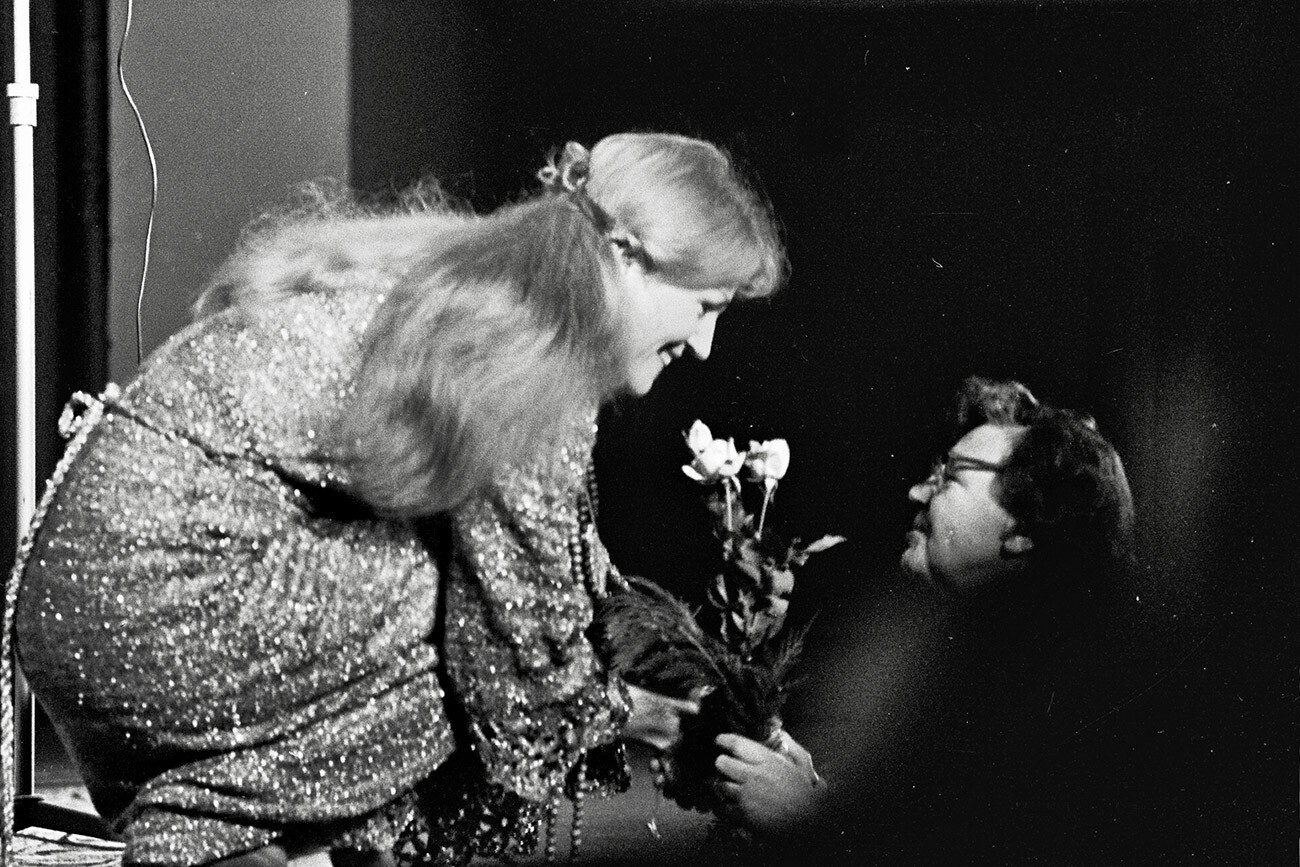
In 1980, she felt bad at a concert in Moscow. Doctors made a dreadful diagnosis: bone cancer, sarcoma. Treatment was hard, but she continued to perform, appearing in public in sunglasses so no one could see her tears of pain. In her last days, when Anna could no longer get out of bed, she recorded ‘Psalms of David’ on a tape recorder. She passed away in the summer of 1982.
A street in her hometown of Urgench now bears her name, as well as a garden in Moscow. Her husband, son and mother came to the opening in Moscow in 2003.
The songs she sang in the 1970s are still popular in Russia today. “How many years have passed since she passed away, but her memory lives on in her unique voice. Thank you, Anna, for being you!” These are just a few of the heartfelt comments Russians leave under her video.
If using any of Russia Beyond's content, partly or in full, always provide an active hyperlink to the original material.
Subscribe
to our newsletter!
Get the week's best stories straight to your inbox